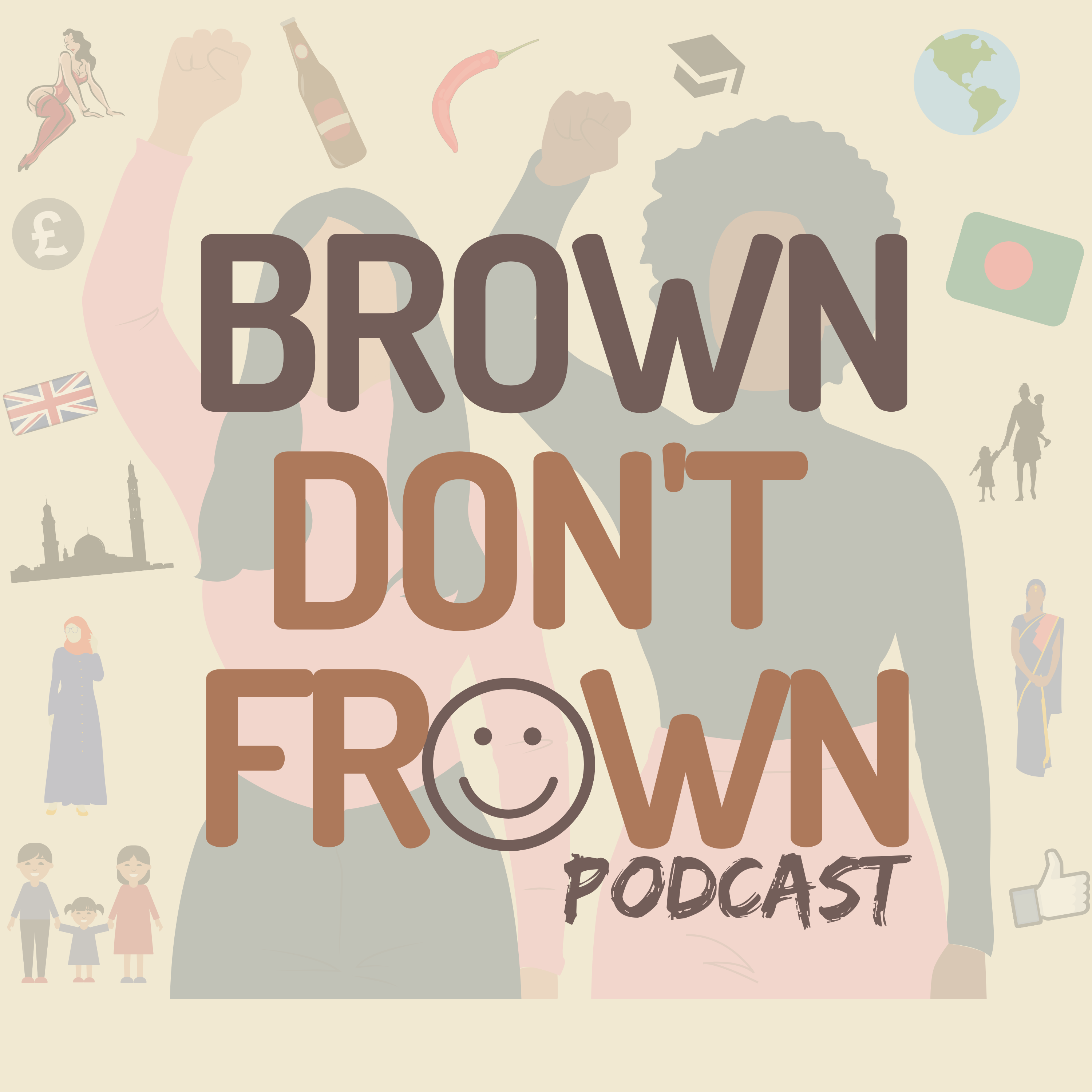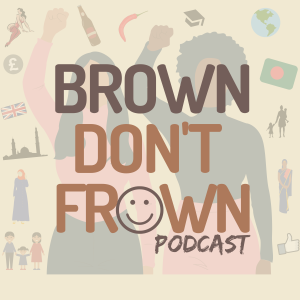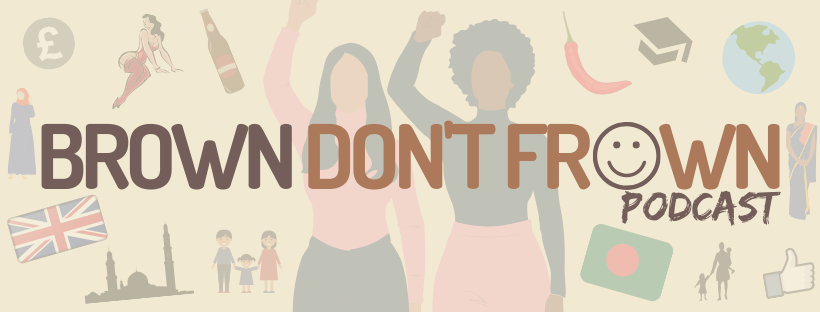
Brown Don't Frown was borne out of a personal journey with womanhood. As a British Bangladeshi, navigating mainstream Feminism often felt exclusionary to me because it didn’t seem to value the experiences or views which shaped my grandmother’s, aunts’, mother’s or friends’ lives. Through this podcast, we seek to build a more inclusive discourse, which breaks down presumptions about different cultures, and shines a positive light on the stories of underrepresented women. Featuring new guest(s) from different walks of life in each episode, Brown Don’t Frown seeks to engage ordinary women and facilitate openness towards entirely new perspectives. It hopes to spark honest and meaningful conversations about intersectional feminist themes in contemporary society with the acknowledgement that our views are shaped by our cultural, racial, religious, social and political experiences. Whether it's discussing society's preconceptions about the Hijab with a British-born Jamaican Muslim woman or examining the impact of gendered expectations on our ability to grieve on our own terms, we hope listeners finish each episode feeling more rounded than they did before. Follow us on: Instagram: https://www.instagram.com/browndontfrownpodcast/ Twitter: https://twitter.com/bdfpodcast?lang=en Facebook: https://www.facebook.com/browndontfrownpodcast LinkedIn: https://www.linkedin.com/company/browndontfrownpodcast
Episodes

Sunday May 03, 2020
Season 2: Ep 14 - Identity Politics, Intersectionality and Freedom of Speech
Sunday May 03, 2020
Sunday May 03, 2020
Journalist and former Brexit Party parliamentary candidate Inaya Folarin Iman and I sit down over Zoom and ponder over the UK’s current political climate and public accountability during COVID-19. We start off discussing our fixation with identity politics and how to overcome it. I also ask Inaya why she believes in Brexit and whether her experience with the Brexit Party felt any different as a woman of colour.
We reflect on Conservatism and Feminism and ask whether they are mutually exclusive. We talk through the objectives of Intersectional Feminism and examine the tacit hierarchies of morality and ‘victimhood’. We then look at the significance of freedom of speech and its compatibility with truth and lasting peace. In doing so, we recognise that as individuals, we only hold part of the truth and that exchanging contrasting views enables original thinking beyond the political binaries of good vs evil, conservatives vs socialists or oppressor vs oppressed. In the midst of this pandemic, we see how dissent, scrutiny and even partisanship help us to hold our leaders accountable.

No comments yet. Be the first to say something!